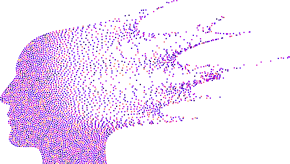Articles By Akhil Sood, MD

Deucravacitinib and Renal Function: Insights from the PAISLEY Trial
In the phase 2 PAISLEY trial, deucravacitinib met its primary and secondary endpoints, demonstrating efficacy across multiple clinical and patient-reported outcomes. However, the impact on renal function has remained unclear. An abstract presented at ACR provides new insights.
Read Article
Taking a closer look: B-Cell depletion beyond the blood
Following the landmark case series by the Erlangen group, multiple cellular therapies have entered the race—each with unique targets, constructs, and mechanisms. Yet, a fundamental question remains: How deep is the B-cell depletion? In clinical practice, peripheral blood counts often serve as our surrogate for depletion. But these may only tell part of the story.
Read Article
The Rapidly Evolving Landscape of Cellular and Immune-based Therapies
A transformation is now underway in rheumatology, where cellular and immune therapies are redefining how we treat autoimmune diseases.
Read Article
ICYMI: Beyond the Needle: Redefining the Assessment of Lupus Nephritis
Lupus nephritis is one of the most silent and severe manifestations of SLE. When not captured early, patients are at high risk of progressing to end-stage renal disease, which would require dialysis or transplantation. Renal biopsy remains the gold standard for diagnosis and disease classification. However, the procedure is invasive and very painful. Non-invasive measures are critical for early detection and continuous monitoring.
Read Article
ICYMI: Taking AI Out of AutoImmunity: Predicting disease before it develops
the predictive value of a positive ANA test—especially in the absence of other clinical symptoms—remains a challenge. A positive test often leads to further testing, yet it does not necessarily indicate whether a patient truly has an underlying autoimmune disease. The development of AI and machine learning algorithms presents an opportunity to interpret autoantibody tests and predict autoimmune diseases. Here are three studies looking at this issue.
Read Article
Cognitive Impairment: The Hidden Burden in Lupus Care
Suppose you have a patient with lupus returning for follow-up. Their joint symptoms are well controlled. The kidneys—managed with a combination of biologic DMARD and mycophenolate—show no signs of active urinary sediment or protein. Yet, during the routine visit, your patient brings up fatigue and difficulty remembering things. How do you address this? Several studies presented at ACR24 focused on cognitive impairment in lupus.
Read Article
Taking AI Out of AutoImmunity: Predicting disease before it develops
the predictive value of a positive ANA test—especially in the absence of other clinical symptoms—remains a challenge. A positive test often leads to further testing, yet it does not necessarily indicate whether a patient truly has an underlying autoimmune disease. The development of AI and machine learning algorithms presents an opportunity to interpret autoantibody tests and predict autoimmune diseases. Here are three studies looking at this issue.
Read Article
Beyond the Needle: Redefining the Assessment of Lupus Nephritis
Lupus nephritis is one of the most silent and severe manifestations of SLE. When not captured early, patients are at high risk of progressing to end-stage renal disease, which would require dialysis or transplantation. Renal biopsy remains the gold standard for diagnosis and disease classification. However, the procedure is invasive and very painful. Non-invasive measures are critical for early detection and continuous monitoring.
Read Article
A Multidimensional Approach in the Management of Axial Spondylarthritis
There has been much focus on the pharmacologic management of axSpA. Despite optimal control of inflammation, symptoms of fatigue and pain can persist. Long term use of analgesics including opioids carries significant risks. Strategies to improve response to treatment in this population is critical.
Read Article
Thinking Outside the Box: Novel Strategies for Early Detection of AxSpA
Strategies to identify patients with suspected inflammatory back pain in the general population is critical for timely and proper diagnosis.
Read Article



